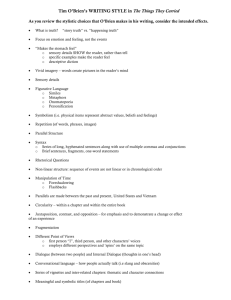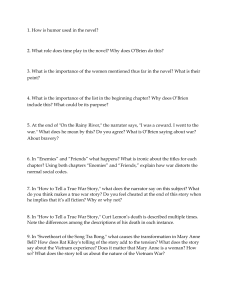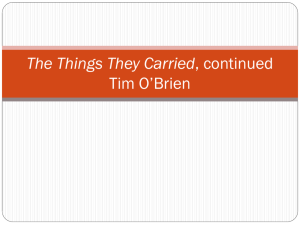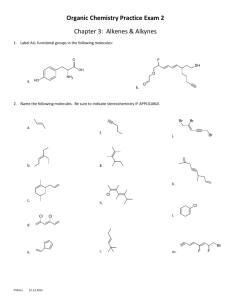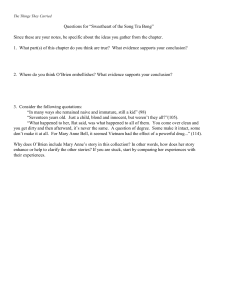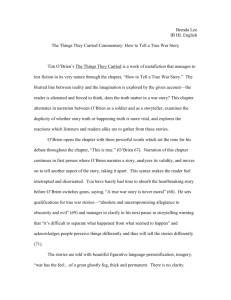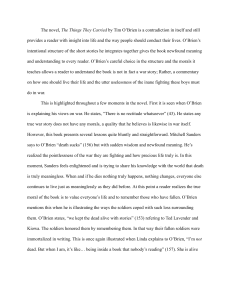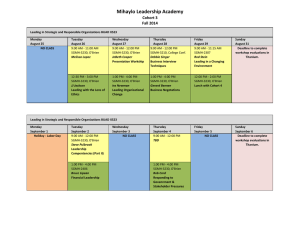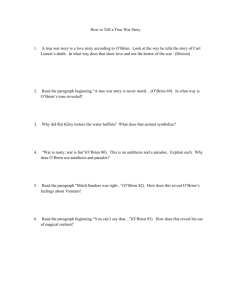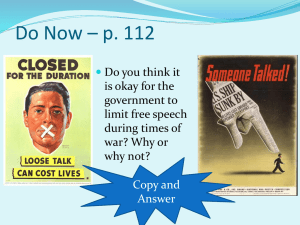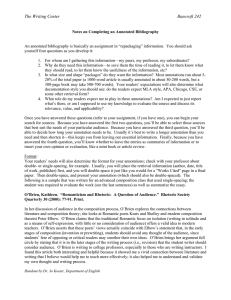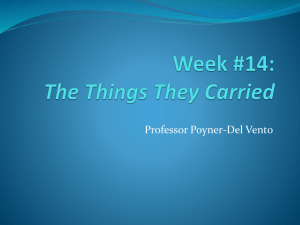Love and War
advertisement
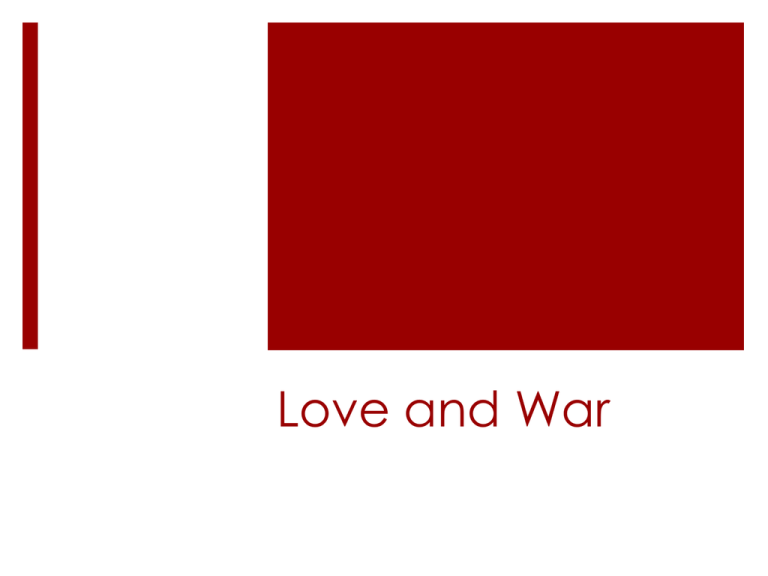
Love and War War Fold paper in half – the long way Write “War” at the top of the paper Brainstorm a list of concrete or abstract ideas that revolve around war. Ready – go – (timed writing) War Review list – make any corrections or additions Share the most specific item The most interesting The strangest The most surprising Discuss Love On the other side of the paper put “Love” at the top Brainstorm concrete or abstract ideas (keep paper folded!) Ready – go – (timed writing) Love Review list – make any corrections or additions Share the most specific item The most interesting The strangest The most surprising Discuss Unfold your paper Compare your lists of “war” and “love” How are they different? Draw conclusions about subjective (based or influenced by personal feelings, tastes or opinions) and objective (not influenced by personal feelings) ways that the 2 ideas differ. What do these ideas have in common? Love of War http://www.youtube.com/watch?v=W4EV7w1Zx aw Take notes as you watch the video! Reaction to the video How are the ideas presented in the video similar or different from what you wrote? How is love defined? Compare to ideas that you wrote? How are the ideas of love and war linked? How does the relationship between the two ideas compare to the connections you noticed before watching the video? “How to Tell a True War Story” How is “there’s a beauty in war” applicable in this story? Look for specific passages that demonstrate the beauty of war. Where are there examples of the love of soldiers have for one another and for the Unit? Last line in the chapter: “ It wasn’t a war story. It was a love story.” What does the speaker mean? How does truth play into whether the story is a war story or a love story? Tim O’Brien talks about Things they Carried http://www.youtube.com/watch?v=B8ivNokqT74 The beginning he reads a letter to his son Timmy 18:00 He begins to talk about The Things They Carried. In your own words, how do you explain O’Brien’s philosophies on story telling, the role of memory, and/or writing in general? So—how does one tell a true war story? What are the difficulties, according to the narrator, in telling the events of war? What is the narrator saying about “truth” and how we understand it? Quote from the text. List the paradoxes of war that O’Brien covers in this chapter. What do these paradoxes suggest about war (or even life) in general? What does the killing of the buffalo symbolize in the story? How does it relate to other aspects of the story/novel? Truth and Fact in The Things They Carried O’Brien writes, “You can tell a true war story by the questions you ask. Somebody tells a story, let's say, and afterward you ask, "Is it true?" and if the answer matters, you've got your answer.” What does O’Brien mean by this? What is O’Brien’s goal with this book? What does he want from his reader? What does he hope his reader gains? What, if anything, have you, as his reader, gained so far?
